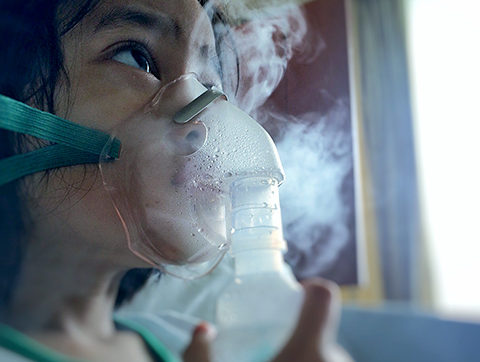By Danielle Mandella –
The coronavirus outbreak is scary. For all of us. It’s a virus that we don’t fully understand, yet. One thing we know for sure is that it’s capable of spreading quickly, and can be very difficult to detect until it’s too late. Recently, a family member who I see frequently informed me that one of their roommates had returned from a trip to China after the outbreak began, but just a few days before the mandatory 14 day US airport quarantine began. This means I’ve already experienced third-party exposure.
Since then, my already heightened flu-season anxiety has been exponentially increased. I’ve lost sleep and limited nonessential social interactions, both of which are vital to mental health. I’ve increased preventative measures, like avoiding common places like grocery stores and pharmacies at peak hours. I’ve completely avoided loved ones that have had first- and second-hand exposure.
This may seem like overreaction. But for many high risk individuals, especially during winter months, it is all too necessary. Consider the severely weakened immune system in organ transplant recipients due to anti-rejection medication, or children without a fully developed immune system. And the fact that those with chronic illnesses like CF are at higher risk for death if they do contract a viral infection. And the fact that in 2020 alone, the CDC estimates 20,000 Americans have died from the influenza virus, significantly outpacing the number of deaths due to coronavirus to date.
Despite this, many still refuse to get a flu shot, or stay home when actively sick. This does not speak well to our cultural understanding of public health and hygiene. How can we expect to fight the spread of coronavirus if we can’t prevent the spread of flu viruses, for which we’ve had effective preventative measures readily available for decades?
Here are three simple things you can do to protect yourself, your family and high risk members of your community:
- Wash your hands often with soap and water. Especially before eating and after handling pets. Scrub hands for no less than 30 seconds, including all parts of the finger and under the fingernails. Rinse with warm, running water and dry thoroughly with a paper towel. (Recent studies show that air dryers are 27 times more likely to spread airborne germs, due to insufficient washing technique.) If soap and water are not available, an alcohol based sanitizer gel is the next best substitute.
- Stay home while sick, and finish all medication as directed by your doctor.
- Limit physical contact. If you absolutely must leave home while sick, or become exposed to someone who is sick, observe the six foot rule. Maintain a safe distance to minimize the risk of spreading illnesses via cough or sneeze. Limit contact, including shared surfaces like doorknobs, light switches, elevator buttons, pens, etc. Politely decline to shake hands. Consider a respectful alternative like bowing or nodding. Or simply smile and say, “Hello, for both of our protection, I’m not going to shake your hand.”
It might feel awkward at first, but at least you will know you’ve done your part to ensure everyone you know and love stays alive and well. Please consult the WHO for information on preventing the spread of coronavirus and other infectious disease.
